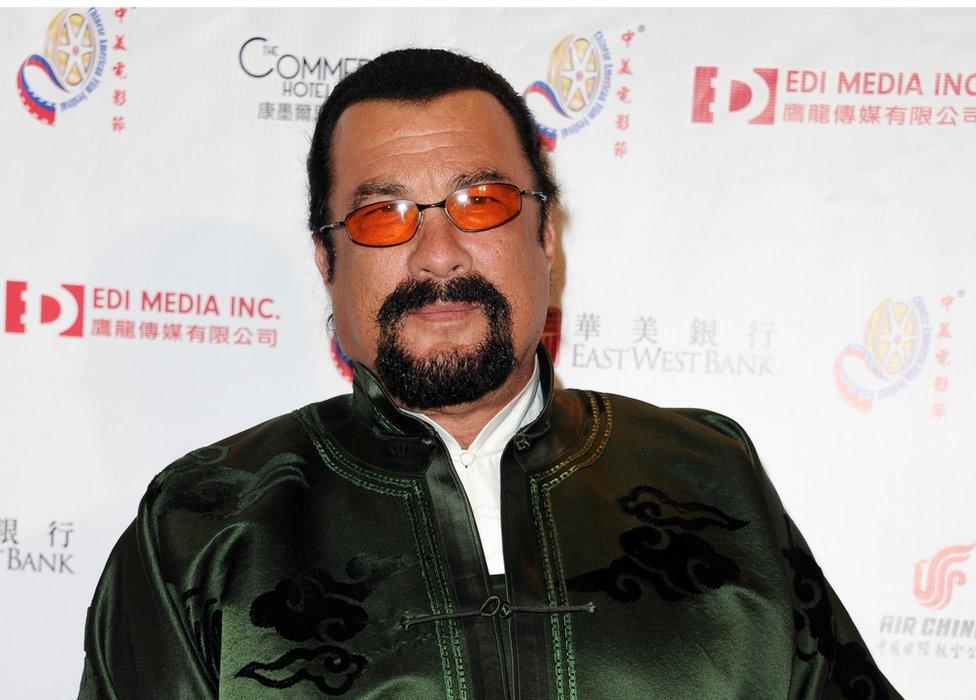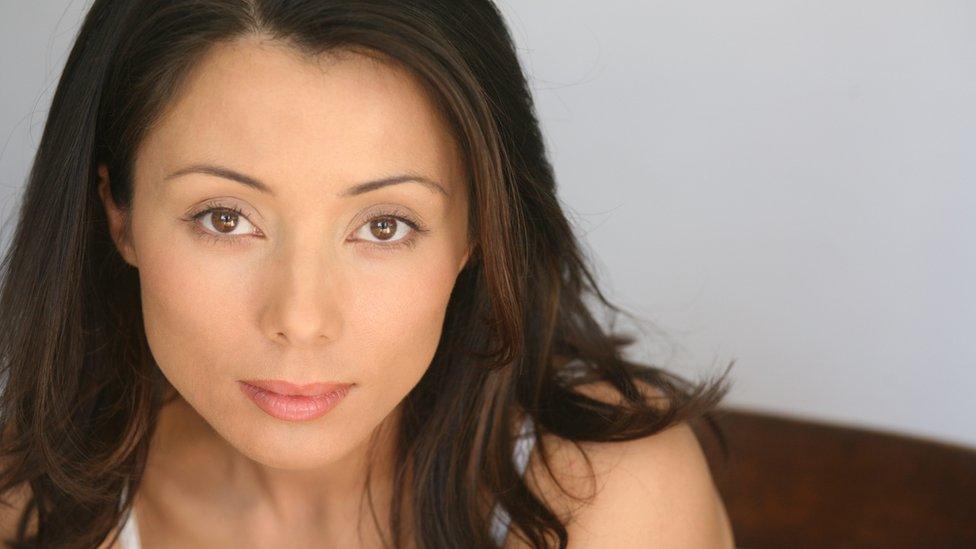Steven Seagal denies Bond girl assault
- Published
Rachel Grant gives the BBC her account of a meeting she says took place in 2002
Actor and producer Steven Seagal has denied an allegation of sexual assault at a film rehearsal in Sofia 2002, made against him by Bond girl Rachel Grant.
Mr Seagal's lawyers also deny another allegation by the actress that he attempted to indecently expose himself.
The British actress later lost her job on the film, Out For A Kill.
Ms Grant, speaking exclusively to the BBC, said: "I want to share what happened to me, so people will hear it and others might come forward."
These claims follow other allegations made against the Hollywood actor, some of which he has denied.
Lawyers for Mr Seagal say that he unequivocally denies Ms Grant's allegations in their entirety: "Our client denies having such contact with Ms Grant and further vehemently denies any alleged assault at all, in particular, the alleged assault occurring in Sofia, Bulgaria, in 2002."
At the weekend, CBS News reported that the Los Angeles Police Department was investigating a separate sexual assault claim, external against the actor.
The 65-year-old, who was given Russian citizenship by President Vladimir Putin in 2016, is best known for his action roles in the 1980s and 1990s, including the Under Siege films.

Actor Steven Seagal at the 2014 Chinese American Film Festival in California
Ms Grant, who played the character Peaceful in James Bond film Die Another Day in 2002, says she was emboldened by women sharing their stories of sexual harassment as part of the #MeToo campaign.
The British actress, who was 26 at the time, claims she was flown to Sofia to rehearse lines in September 2002 after auditioning for a role in Out For A Kill. She says she was excited to meet Mr Seagal, who had been a childhood hero.
She claims she met the actor in a hotel suite with the film's director, but when left alone in the room with Mr Seagal, she alleges he asked her to take her top off several times, which she refused.
"I stood up to try to distract him. But he was able to tug down my top, which was strapless. My breasts were completely exposed and I was forced to cover myself," she claims.
"He pushed me on to the bed with force. Then he said, 'I suppose you want to see my private parts' - though he used a different word.
"I was looking up and he started to pull down his zip," she alleges.
Ms Grant then "burst into tears", at which point Mr Seagal stopped and began to apologise, she says.
She says Mr Seagal told her that he liked to date actresses he worked with to improve the "on-screen chemistry".
"It was horrible - I was upset, embarrassed and hurt.
"What actress should be brought to someone's bedroom on the first meeting and then be told to take their top off?"

Rachel Grant, 41, now works as an actress, producer and TV presenter
Ms Grant says she has been the victim of sexual harassment on other occasions but that she has refused to let the incidents affect her career.
"I lost a job and I cried a lot but I'm a positive person - I tried to take it with a pinch of salt," she explains, acknowledging that not all victims of sexual assault are able to recover.
She wants to end the culture of questioning why many victims of sexual harassment only share their experiences years after the event.
"When it happens to you, you're ashamed, you're embarrassed, nobody needs to know, nobody. You hope it gets covered in dust and no one will ever know.
"I want people to know that it actually makes more sense for people to talk about it a long time after it happens - you get over it and then you can talk about it."
She says she hopes campaigns like Time's Up and #MeToo will help bring an end to sexual harassment in the industry.

Follow us on Facebook, external, on Twitter @BBCNewsEnts, external, or on Instagram at bbcnewsents, external. If you have a story suggestion email entertainment.news@bbc.co.uk.